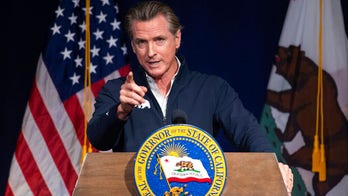On the campaign trail, Sen. Barack Obama promised that President Barack Obama would redirect power from the presidency to the Congress.
But students of the presidency as well as constitutional law suggest any shift of power between the branches over the next four years will likely be incremental, not radical.
Though the president-elect promised to roundly "reverse" the actions of the Bush administration on the matter, scholars say voters can expect Obama's treatment of executive power to be couched in nuance and obscure legal filings.
"No president lightly gives up all of those prerogatives," said Barton Gellman, author of "Angler," a critical study of Vice President Dick Cheney's conduct. He said Obama and Vice President-elect Joe Biden would likely try to strike compromises when it comes to the power dynamic between the president and the rest of Washington.
"Instead of asserting these as cardinal principles that can't be crossed, lines that can't be crossed, I think that Obama and his people are going to be looking to negotiate and finesse these conflicts, which have come up over and over in American history, when you come to the seams between executive and legislative and judicial power," Gellman said.
Cheney has sought openly to restore power to the presidency after moves by Congress, in the wake of the Vietnam War and the Watergate scandal, to diminish it.
The outgoing vice president defended his views on "FOX News Sunday" over the weekend.
"The Congress ... clearly has the ability to write statutes and has certain constitutional authorities granted in the Constitution. But I would argue that they do not have the right by statute to alter a presidential constitutional power," Cheney said.
The incoming vice president couldn't disagree more. In a dueling interview Sunday on ABC News' "This Week," Biden said, "His notion of a unitary executive, meaning that, in time of war, essentially all power, you know, goes to the executive, I think is dead wrong."
Obama gave similarly definitive statements during the campaign about how he views Bush's expansion of power over the last eight years.
At a March rally in Lancaster, Pa., Obama said the "biggest problems" facing the country have to do with Bush trying to "bring more and more power into the executive branch and not go through Congress at all.
"And that's what I intend to reverse when I'm president of the United States of America," Obama said.
He also told an MTV-MySpace forum in October 2007 that when he is president, "One of the first things I'm going to do is call in my attorney general and say to him or her: 'I want you to review every executive order that had been issued by George Bush and if they are unconstitutional, if they're encroaching on civil liberties unnecessarily, we are going to overturn them.'"
But Louis Fisher, a prominent constitutional scholar, said the positions advanced by the departing administration were not exactly novel.
"The criticism of people in the Bush Justice Department, in the Office of Legal Counsel -- if you look at those memos, the torture memos and so forth, they were building on what the Office of Legal Counsel had done decade after decade after decade. So no, I think continuity is a huge factor here," he said.
Continuity may also play a role in how the Obama administration handles numerous pending lawsuits it will inherit involving thorny issues like the ability of Congress to subpoena testimony by White House aides, and the legal rights of prisoners at Guantanamo Bay.




